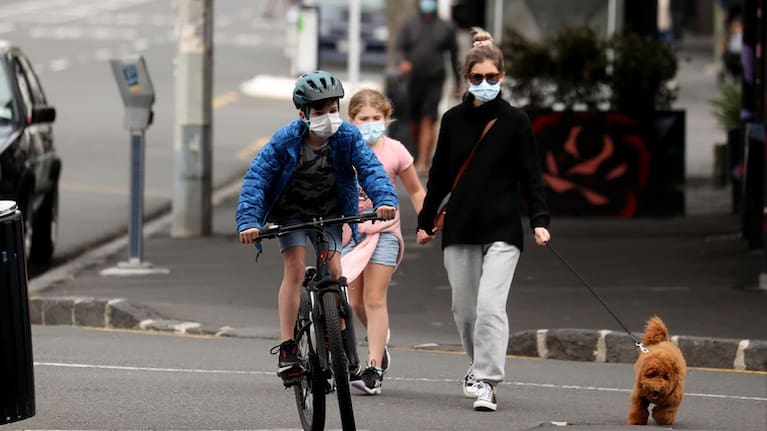National's transport spokesperson Simeon Brown says he expects congestion charges will incentivise people to make a shift towards public transport as part of a broader strategy to tackle transport emissions.
In the past month, Brown has accused the Government of declaring a "war on our cars" after it announced new rules that would make it easier for local councils to slow speeds and launch street layout trials.
Speaking to Q+A, the Pakuranga MP said the 'Reshaping Streets' proposals, which include enabling councils to trial closing streets before and after school, were "basically an ideological attempt to try and force people out of the cars".
"My view and the National Party's view is that streets are there to actually get people where they need to go… and at the core of it - takes away the opportunity for people to have their say, and removes a whole lot of consultation requirements," he said.
When asked what improvements he would do to make streets safer for children, Brown said there should be temporary speed limit changes around schools during drop-off and pick-up times – but said permanent reductions went "a bit too far".
Meanwhile, Transport Minister said last month that the proposals would help the country "meet our emissions reduction targets, reduce deaths and serious injuries from transport, and improve health and wellbeing."
"Reshaping Streets gets the balance right between ensuring we can move people and goods effectively while making our streets safe for all users."
Transport is the country's second-largest source of greenhouse gas emissions, and Brown said there were a "number of ways" to get to net-zero by 2050.
He said the Emissions Trading Scheme would do "the heavy-lifting" of reducing transport emissions, though there would be "other things that need to happen at the same time." Brown refused to estimate how much petrol prices could rise with long-term carbon prices.
1News Jordyn Rudd takes a look at the scheme, as the Government releases its new plan to tackle greenhouse gas emissions.
The transport spokesperson said National supported cleaner car standards but that "realistic and reliable" emissions standards needed to be worked out with the industry. Brown added that electric vehicles needed to be encouraged alongside public transport in cities like Auckland.
"There are a significant number of public transport projects that will need to be done. Congestion pricing will play a role in terms of helping to incentivise people to make those choices, at that time as well. But at the same time, you look around the world, and you see the big car companies making the decision to go all-electric."

Road pricing to help ease congestion - Brown
National's transport spokesperson said additional roads would be "part of the solution" to reduce congestion.
"We look at where the capacity may be required, and so, with population growth, you're going to need more capacity that needs to be in the right place," he said.
"That's not just freight movements, but people getting around Auckland – if you look at where people go to work, it's not all just to the city centre."
In Auckland, Brown said the City Rail Link project would make a "huge difference" in reducing congestion and that the previous government had gotten the project across the line.
New Zealand's largest ever infrastructure project was launched in 2016 and is expected now to be operational by 2025.
However, the previous National Government had delayed funding the public transport infrastructure project for several years – stating on several occasions that it believed the project wasn't viable.
When asked about induced demand, Brown contended that "the point is people drive to get to where they're going. I don't think there are many people out there who just go: 'Well, there's a new road, so we might as well use it.'"
"The people who use [Transmission Gully] are travelling to work, or they're travelling home, or they're getting into Wellington, or getting out of Wellington. So the demand on that road is a product of where people are trying to get to," he said.
The "induced demand" phenomenon suggests that reducing travel times – through new road supply – will quickly be offset by changes in new demand from motorists who previously avoided rush hour, or who choose to commute from further away.

Public transport and cycling advocates often cite the phenomenon when opposing road widening and new motorway projects.
"I think what does induce demand is when you have people living further and further away from the place that they work, they obviously have to travel further.
"So there is obviously inter-relation between planning policy and transport policy - those are important questions to as, but I think the point is that people's demand is based on what people are doing with their lives."






















SHARE ME